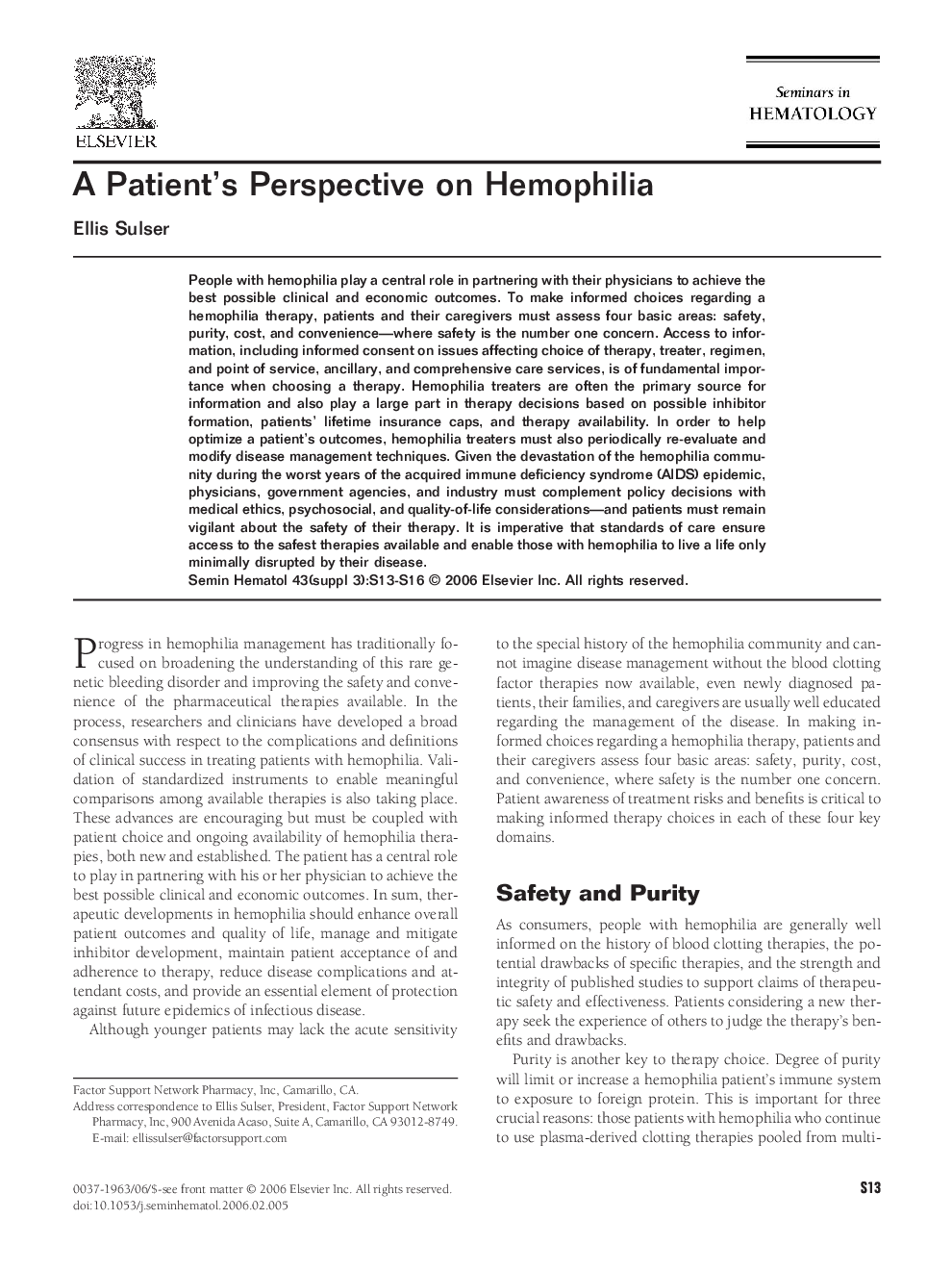| Article ID | Journal | Published Year | Pages | File Type |
|---|---|---|---|---|
| 3333828 | Seminars in Hematology | 2006 | 4 Pages |
People with hemophilia play a central role in partnering with their physicians to achieve the best possible clinical and economic outcomes. To make informed choices regarding a hemophilia therapy, patients and their caregivers must assess four basic areas: safety, purity, cost, and convenience—where safety is the number one concern. Access to information, including informed consent on issues affecting choice of therapy, treater, regimen, and point of service, ancillary, and comprehensive care services, is of fundamental importance when choosing a therapy. Hemophilia treaters are often the primary source for information and also play a large part in therapy decisions based on possible inhibitor formation, patients’ lifetime insurance caps, and therapy availability. In order to help optimize a patient’s outcomes, hemophilia treaters must also periodically re-evaluate and modify disease management techniques. Given the devastation of the hemophilia community during the worst years of the acquired immune deficiency syndrome (AIDS) epidemic, physicians, government agencies, and industry must complement policy decisions with medical ethics, psychosocial, and quality-of-life considerations—and patients must remain vigilant about the safety of their therapy. It is imperative that standards of care ensure access to the safest therapies available and enable those with hemophilia to live a life only minimally disrupted by their disease.
